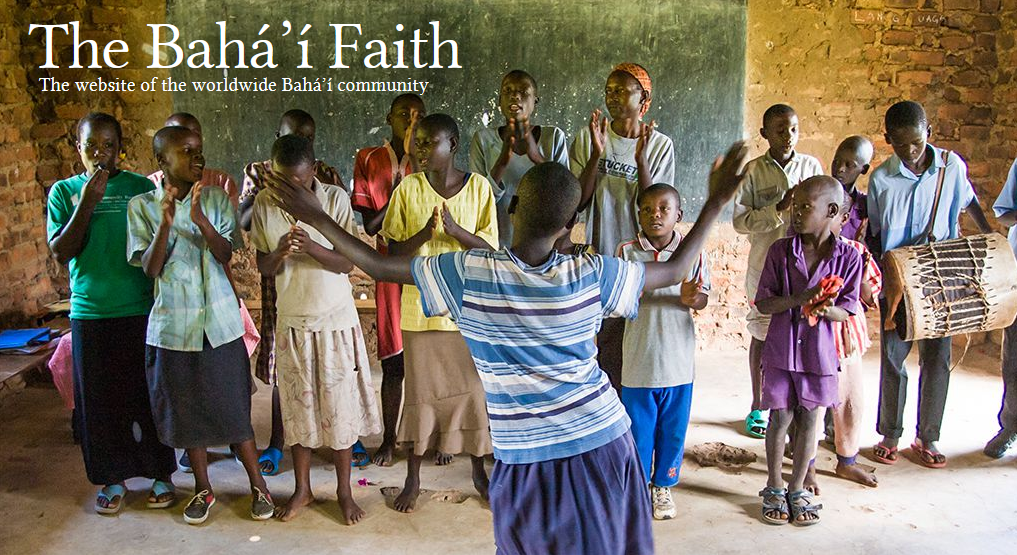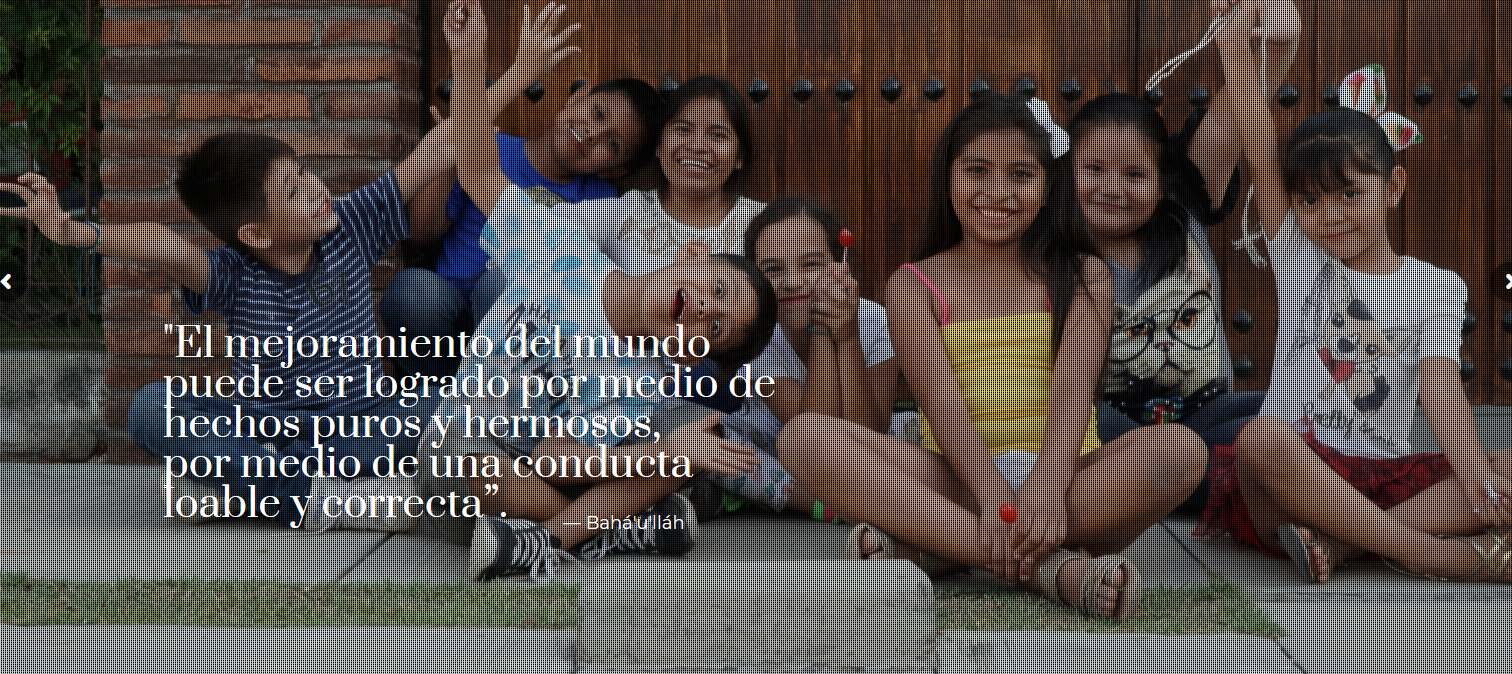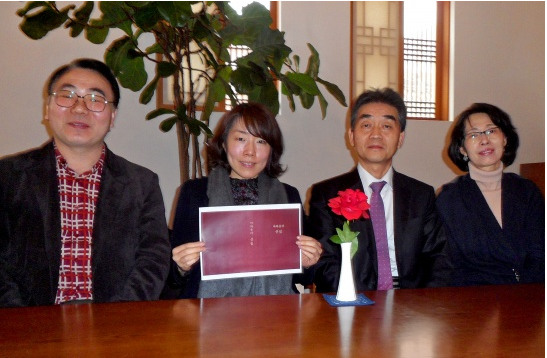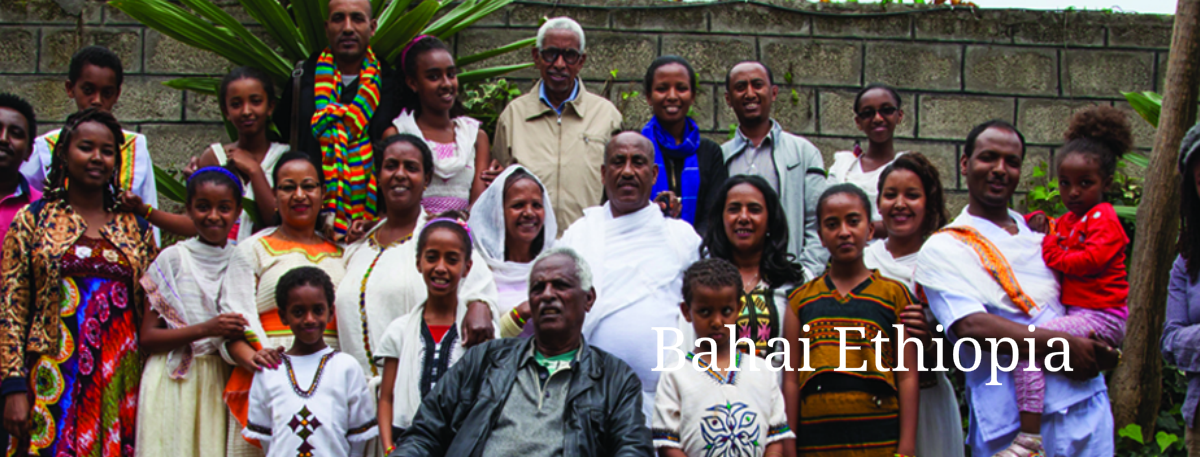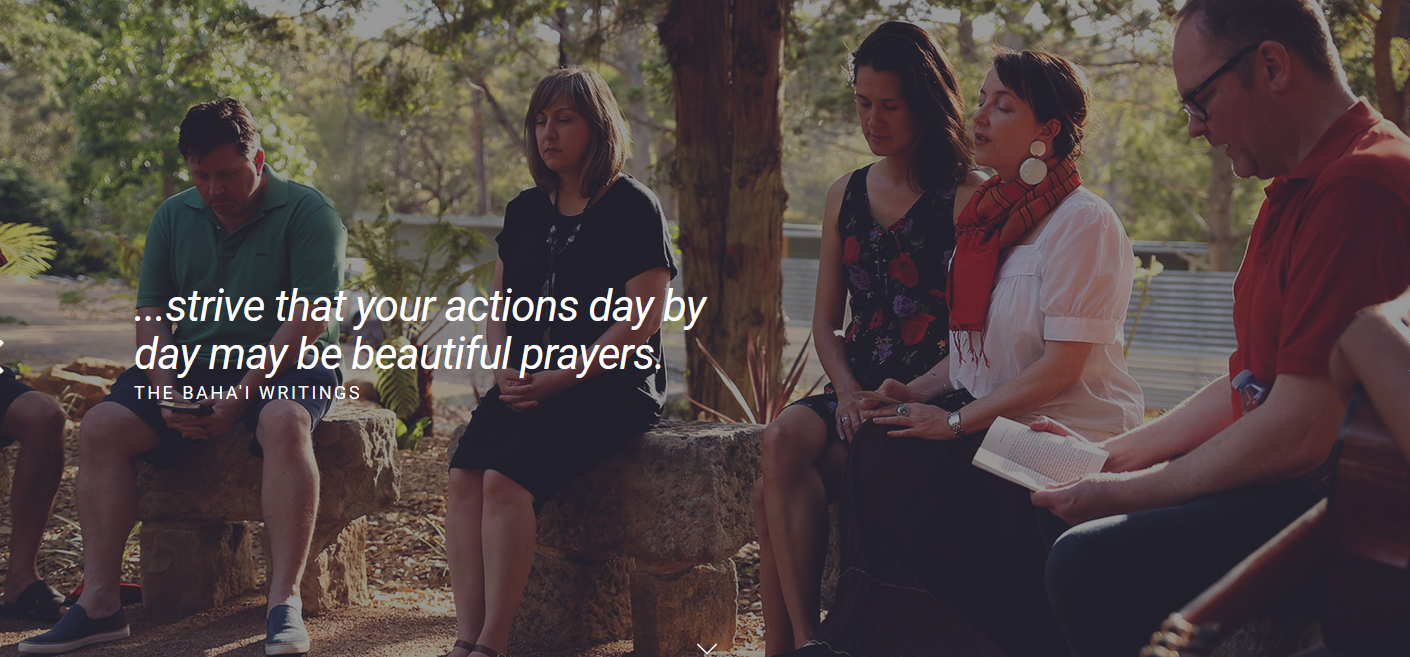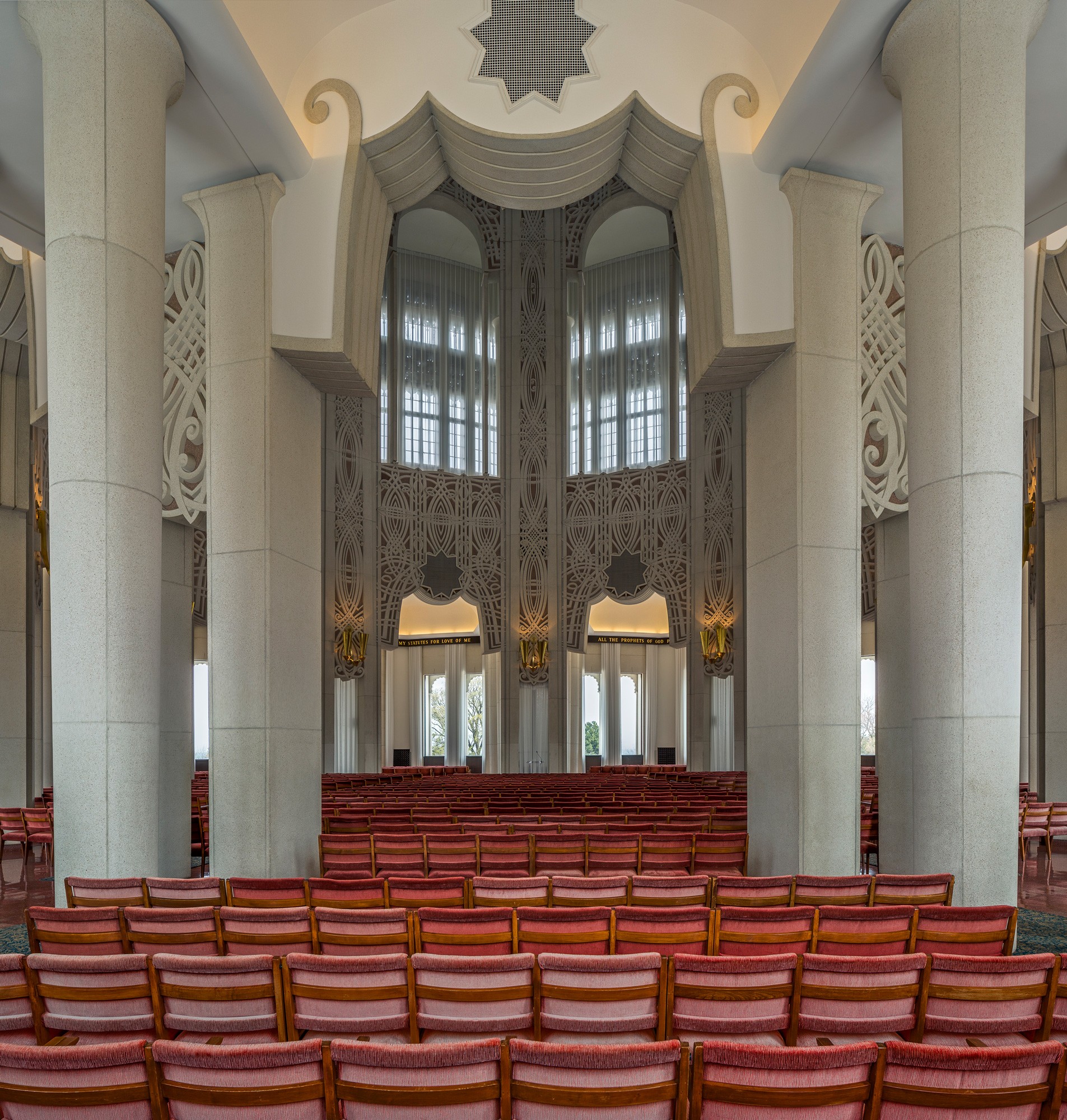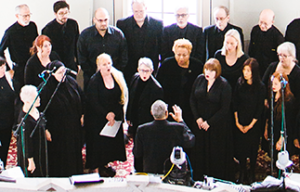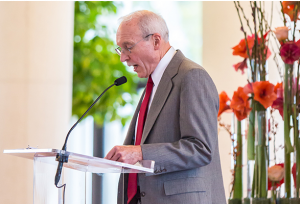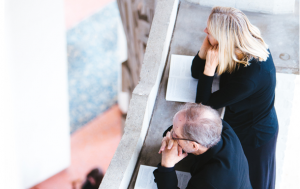Bahá’í Faith
Throughout history, God has sent to humanity a series of divine Educators—known as Manifestations of God—whose teachings have provided the basis for the advancement of civilization. These Manifestations have included Abraham, Krishna, Zoroaster, Moses, Buddha, Jesus, and Muhammad. Bahá’u’lláh, the latest of these Messengers, explained that the religions of the world come from the same Source and are in essence successive chapters of one religion from God.
Bahá’ís believe the crucial need facing humanity is to find a unifying vision of the future of society and of the nature and purpose of life. Such a vision unfolds in the writings of Bahá’u’lláh.
What Bahá’ís Believe
Bahá’u’lláh and His Covenant
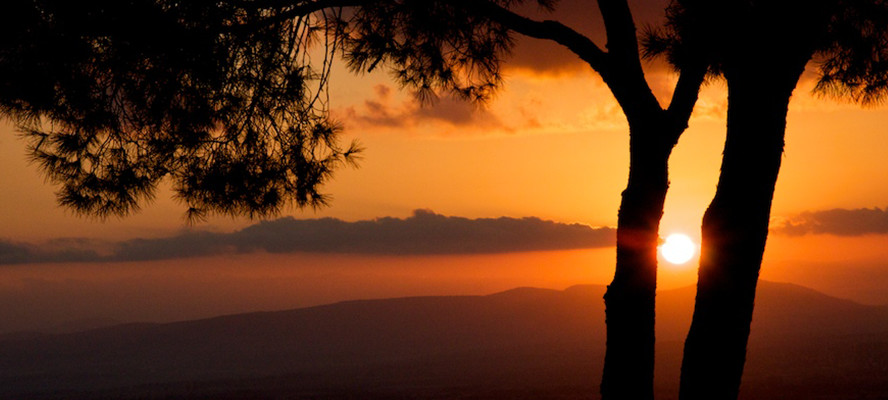
“These holy Manifestations have been as the coming of springtime in the world…For each spring is the time of a new creation…”— ‘Abdu’l‑Bahá
The Bahá’í Faith began with the mission entrusted by God to two Divine Messengers—the Báb and Bahá’u’lláh. Today, the distinctive unity of the Faith They founded stems from explicit instructions given by Bahá’u’lláh that have assured the continuity of guidance following His passing. This line of succession, referred to as the Covenant, went from Bahá’u’lláh to His Son ‘Abdu’l-Bahá, and then from ‘Abdu’l-Bahá to His grandson, Shoghi Effendi, and the Universal House of Justice, ordained by Bahá’u’lláh. A Bahá’í accepts the divine authority of the Báb and Bahá’u’lláh and of these appointed successors.
The Báb »
(1819-1850)The Báb is the Herald of the Bahá’í Faith. In the middle of the 19th century, He announced that He was the bearer of a message destined to transform humanity’s spiritual life. His mission was to prepare the way for the coming of a second Messenger from God, greater than Himself, who would usher in an age of peace and justice.
Bahá’u’lláh »
(1817-1892)Bahá’u’lláh—the “Glory of God”—is the Promised One foretold by the Báb and all of the Divine Messengers of the past. Bahá’u’lláh delivered a new Revelation from God to humanity. Thousands of verses, letters and books flowed from His pen. In His Writings, He outlined a framework for the development of a global civilization which takes into account both the spiritual and material dimensions of human life. For this, He endured 40 years of imprisonment, torture and exile.
‘Abdu’l‑Bahá »
(1844-1921)In His will, Bahá’u’lláh appointed His oldest son, ‘Abdu’l-Bahá, as the authorized interpreter of His teachings and Head of the Faith. Throughout the East and West, ‘Abdu’l-Bahá became known as an ambassador of peace, an exemplary human being, and the leading exponent of a new Faith.
Shoghi Effendi »
(1897-1957)Appointed Guardian of the Bahá’í Faith by ‘Abdu’l-Bahá, His eldest grandson, Shoghi Effendi, spent 36 years systematically nurturing the development, deepening the understanding, and strengthening the unity of the Bahá’í community, as it increasingly grew to reflect the diversity of the entire human race.
The Universal House of Justice »
(established 1963)The development of the Bahá’í Faith worldwide is today guided by the Universal House of Justice. In His book of laws, Bahá’u’lláh instructed the Universal House of Justice to exert a positive influence on the welfare of humankind, promote education, peace and global prosperity, and safeguard human honour and the position of religion.
Bahá’ís in the Philippines
The Philippine Bahá’í community is part of the worldwide Bahá’í community, which, inspired by the teachings of Bahá’u’lláh, carries out activities that contribute towards the advancement of civilization.
It engages in various efforts that uphold the nobility of man and promote the fulfillment of the essential oneness of humankind. Some of the community’s endeavours include organizing time for prayers and devotions that build the spiritual character of families and neighborhoods; tending to the moral education of children, offering spiritual empowerment to young adolescents, engaging youths and adults from all strata of society in the study of materials that will build their capacity to serve their communities. All these are aimed towards the betterment of the lives of the individuals and the advancement of the communities they live in.
Early Beginnings
The first Bahá’í institution in the Philippines—the Local Spiritual Assembly of Solano in the province of Nueva Vizcaya—was formed in 1939, a year after Felix R. Maddela became the first Bahá’í in the Philippines.
These Bahá’ís, though few in number, dedicated time and efforts in sharing the message of Bahá’u’lláh. By 1960, there were four Local Spiritual Assemblies in the Philippines and about 400 Bahá’ís.
In 1961, Hand of the Cause of God Dr. Rahmatulláh Muhájir visited the Philippines—the first of his numerous visits to the Philippines that he undertook during his lifetime. A year later, 24 Local Assemblies were established and hundreds of Filipinos enrolled in the Bahá’í Faith. In 1964, the first National Spiritual Assembly of the Philippines was elected. Its members were Vicente Samaniego, Pablo Mercado, Jack Davis, Neva Dulay, Luisa Mapa Gomez, Dominador Anunsacion, Ruth Walbridge, Theodore Boehnert and Orpha Daugherty. By the year 1980, 45 Local Spiritual Assemblies were elected throughout the Philippines and several hundreds of individuals, aspiring to serve humanity, joined the Bahá’í community.
The years that followed witnessed a steady rise in the enrollments to the Faith, as well as a systematization of its activities that promote the well-being of humankind.
Bahá’ís in Mexico
La Fe Bahá’í en México
Entre 1916 y 1917, ‘Abdu’l-Bahá reveló las tablas del plan divino, epístolas dirigidas a los bahá’ís de Norteamérica para apoyar el despliegue del plan para llevar el mensaje de Bahá’u’lláh a todos los rincones de la tierra. En la primera de estas cartas se menciona que México es un país muy importante y asegura que «si un aliento de vida fuese soplado sobre ellos [los habitantes de México], se obtendrían grandes resultados». Esto impulsó a que algunas personas respondieran al llamado de difundir estos principios en todos los rincones del mundo.
Como respuesta a este llamado, durante la década de los años veinte, las bahá’ís norteamericanas Martha Root, Orcella Rexford y Beatrice Irwin fueron algunas de las primeras personas que hicieron viajes a Latinoamérica para compartir los principios de la Fe bahá’í. En 1935 la señora Loulie Mathews, junto con su esposo, viajaron a Sudamérica y en su camino visitaron Yucatán, México.
La primera comunidad bahá’í en formarse fue en la Ciudad de México en 1938, y con el paso de los años, la Fe de Bahá’u’lláh se extendió a otras ciudades del país, entre ellas Monterrey, Puebla, Guadalajara, San Miguel de Allende y Mérida. El deseo de los primeros bahá’ís de compartir los principios de su fe con otros, con la firme convicción de que muchas más personas podrían encontrar esperanza en ellos, llevó a la comunidad bahá’í a crecer en número, expandiéndose hacia otras localidades. Para 1947, habiendo transcurrido solo un poco más de una década desde que por primera vez alguien escuchase sobre estas enseñanzas, la comunidad bahá’í había crecido y desarrollado un sentido de identidad en todo el país. Impulsados por el deseo de promover estos principios en la sociedad, ese mismo año, los bahá’ís de México realizaron un congreso con la participación de bahá’ís de Centroamérica y del Caribe, con la finalidad de ampliar su comprensión sobre el significado de la unidad y la paz mundial.
Diez años después, en 1957, algunas personas de pueblos originarios de México aceptaron la Fe bahá’í, y en 1959 participaron en el Congreso Indígena Interamericano, el cual se llevó a cabo en Guatemala. Las comunidades bahá’ís, tanto en las poblaciones indígenas, rurales y en las ciudades, siguieron fortaleciéndose hasta abarcar 32 localidades en 1963, año en que se establecieron once Asambleas Espirituales Locales las cuales velarían por el desarrollo de la fe. Posteriormente, en 1977 se celebró en Mérida una conferencia internacional bahá’í sobre la expansión de la fe, la importancia de la devoción, la emancipación de la mujer y la educación de los niños, a la cual asistieron más de dos mil personas.

Durante los inicios de la década de los 80, un grupo numeroso de bahá’ís iraníes llegaron a establecerse en el país y se convirtieron en un eje de apoyo para todos los que comenzaban a abrazar la Fe de Bahá’u’lláh. Posteriormente, en los 90, la Fe bahá’í en México entró en una nueva fase con un llamado mundial a participar en esfuerzos enfocados al progreso material y espiritual de comunidades, a través de la educación espiritual de personas de todas las edades, la acción social y la participación en los discursos prevalecientes de la sociedad.
Actualmente, hay bahá’ís en más de 200 localidades en México. En muchas de éstas, los aprendizajes generados por el deseo de llevar a la acción las enseñanzas de Bahá’u’lláh están, poco a poco, formando comunidades vibrantes preocupadas por su desarrollo material y espiritual, fortaleciendo lazos de amistad genuinos entre los habitantes de un barrio o pueblo, quienes trabajan juntos sin importar sus diferencias de edad, orígenes o creencias, y seguros de que el espíritu de servicio que los impulsa puede moldear la realidad de su comunidad hacia una de unidad, armonía y apoyo mutuo.
-
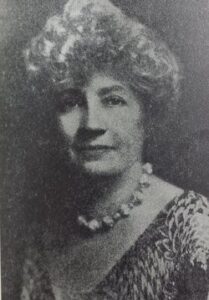
Fotografía de Loulie Mathews. -
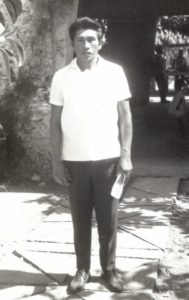
Primeros bahá’ís de la península de Yucatán. -
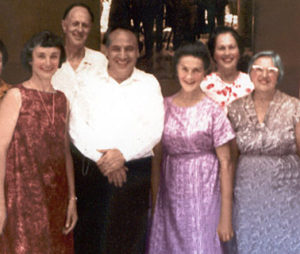
Bahá’ís que sirvieron en Yucatán en los años 60. -

Primeros eventos bahá’ís. -

Evento bahá’í en San Miguel de Allende, Guanajuato en los años 60. -
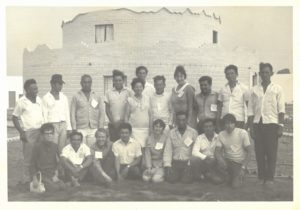
Reunión bahá’í a finales de los años 60 . -
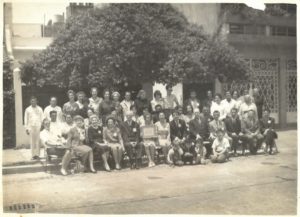
Primeras Convenciones Nacionales en el Instituto Amelia Collins en 1970 en San Francisco Acatepec, Puebla. -
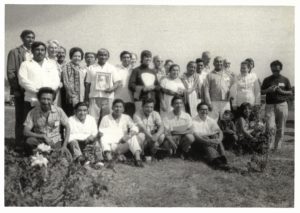
Convención Nacional Bahá’í en los años 70 (1975). -

IV Convención Nacional de la Ciudad de México 1965. -

Primeros bahá’ís de Santa Cruz de Guadalupe, Durango en 1975. -
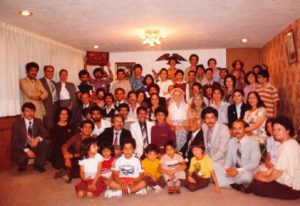
Reunión bahá’í con Rúhíyyih Khanum en la Ciudad de México en 1980. -
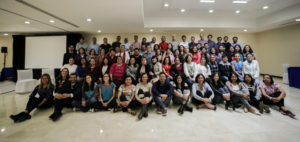
Bahá’í Community of Korea
“세계의 진보는 순수하고 선한 행위와, 칭찬할 만하며 품위 있는 행실에 의해 달성 될 수 있느니라.” – 바하올라
하느님의 단일성
모든 창조의 근원이신 하느님이 한분이시라는 의미의 하느님의 단일성, 바하이들은 인간이 이 세상에서 해야 할 것들 가운데 가장 중요한 것은 바로 유일하신 하느님을 알아보고 그분을 경배하는 것이라고 믿습니다.
Bahá’í’s of Ethiopia
The Bahá’í Faith was first established in Ethiopia in 1933. Since that time, increasing numbers of people throughout the country have been finding inspiration and guidance in the teachings of Bahá’u’lláh. Here, members of the Bahá’í community are working together with their neighbors and friends to promote and contribute to the well-being and progress of society.
የባሃኢ እምነት ከአምላክ የተገለፀና ራሱን የቻለ ሐይማኖት ሲሆን ራዕዩም ሁሉንም የሰው ዘሮችና ህዝቦች በአንድ ሁሉን አቀፍ የአምላክ እቅድና ሃይማኖት ለማዋሃድ ነው፡፡ ባሃኡላህ የባሃኢ እምነት መስራች ሲሆን ተከታዮችም ባሃኢዎች ይባላሉ፡፡ ባሃኡላህ እንደሚመጣ በሁሉም ሐይማኖቶች ቅዱሳን ፅሑፎች ቃል የተገባለት ነው ብለው ባሃኢዎች ያምናሉ፡፡ ሰላምና ስምምነት በምድር ላይ ይመሰረታል፤ የሰው ልጆችም በታላቅ ፍሰሐ ይኖራሉ የሚለው የአምላክ ቃል ኪዳን ይሟላ ዘንድ ባሃኡላህ ከአምላክ ትምህርቶችንና መመሪያዎችን ይዞልን መጥቷል፡፡
Bahá’í Faith is a religion of God, independent of God, and aims to unite all mankind and peoples into one universal plan and religion. Bahá’u’lláh is the founder of the Bahá’í Faith and his followers are called Bahá’ís. The Bahá’ís believe that the scriptures promise the coming of Bahá’u’lláh in all religions. Peace and harmony will prevail on earth; Bahá’u’lláh has brought us God’s teachings and instructions to fulfill God’s promise that mankind will live in bliss.
Australian Baha’i Community
Auditorium
The Auditorium, upstairs, is closed until further notice.
The gardens are open. You are welcome to visit the gardens. Please follow social distancing guidelines in the gardens.
Welcome Center
Welcome Center is closed until further notice.
The gardens are open. You are welcome to visit the gardens. Please follow social distancing guidelines in the gardens.
Upcoming Event
All planned programs and activities in person have been suspended until further notice.
Sign up for the House of Worship eNewsletter or check this site for virtual programs and updates.
Attend virtual Daily Devotions at 12:30 p.m. Central time
View recordings of 2020 holy day programs on YouTube
The Baha’i Faith teaches that every individual can investigate religious and spiritual truth. During your visit, you are free to explore the Baha’i Faith’s unifying teachings, including the oneness of humanity, the common threads among all major religions, and the connection between the human spirit and the betterment of the world.

